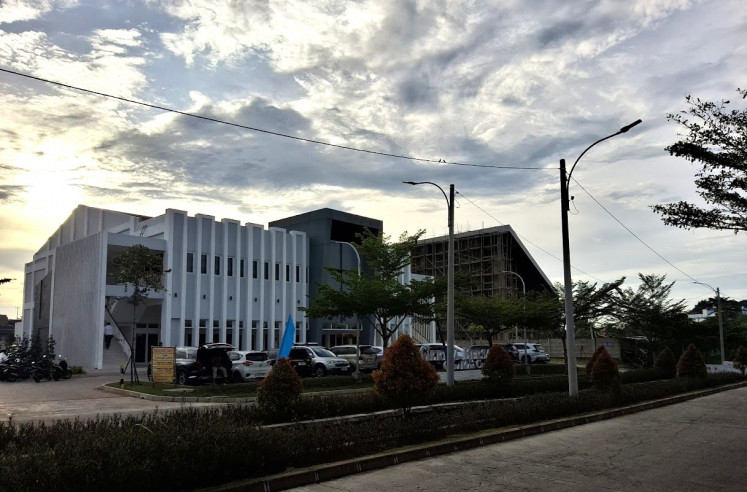Popular Reads
Top Results
Can't find what you're looking for?
View all search resultsPopular Reads
Top Results
Can't find what you're looking for?
View all search resultsPatent Law and transfer of technology
Currently, Indonesia is a country that has not optimally encouraged the development of technology, specifically the improvement in the mastery and utilization of technology. This in turn has weakened Indonesia’s competitiveness.
Change text size
Gift Premium Articles
to Anyone
O
ne year ago, the Indonesian government implemented Law No. 13 of 2016 concerning patents to replace Law No. 14 of 2001 on the same subject. The new patent law focuses on the regulation of how Indonesia can be more effective in implementing intra-Indonesian technology transfer activities.
Currently, Indonesia is a country that has not optimally encouraged the development of technology, specifically the improvement in the mastery and utilization of technology. This in turn has weakened Indonesia’s competitiveness.
This can be seen from the 2017 Global Innovation Index report. Indonesia’s innovation ranking is 87th out of 127 countries. In the ASEAN region alone, Indonesia’s position is far below Malaysia’s at 37th and Vietnam at 47th.
Based on the Global Competitiveness Index data from the 2016-2017 World Economic Forum, Indonesia ranked 41st overall out of 138 countries, in the innovation pillar Indonesia ranked 31st, in the innovation capacity sub-pillar Indonesia ranked 32nd, while in the high-tech government spending sub-pillar Indonesia ranked 12th, and Indonesia’s rank for the international patent sub-pillar was 99th.
The data above is not an encouraging sign of the development of Indonesian technology. One of the causes for concern is the fact that the transfer of technology policy in Indonesia has not been real and progressive.
Some policies have been used as a legal basis to encourage transfers of technology, such as Article 10 (4) of the Investment Law, which states: “Investment companies employing foreign workers are required […] and transfer of technology to Indonesian citizens [….]” Furthermore, Article 16 (1) of the Law on the National System of Research, Development and Application of Science and Technology states: Universities and R&D […] the transfer of intellectual property technology […] funded by the government and/or local governments.
Looking at these two policies, the government has actually shown a “political will” to require the implementation of transfer of technology in order to encourage the parties to master the technology either from abroad or incountry.


















